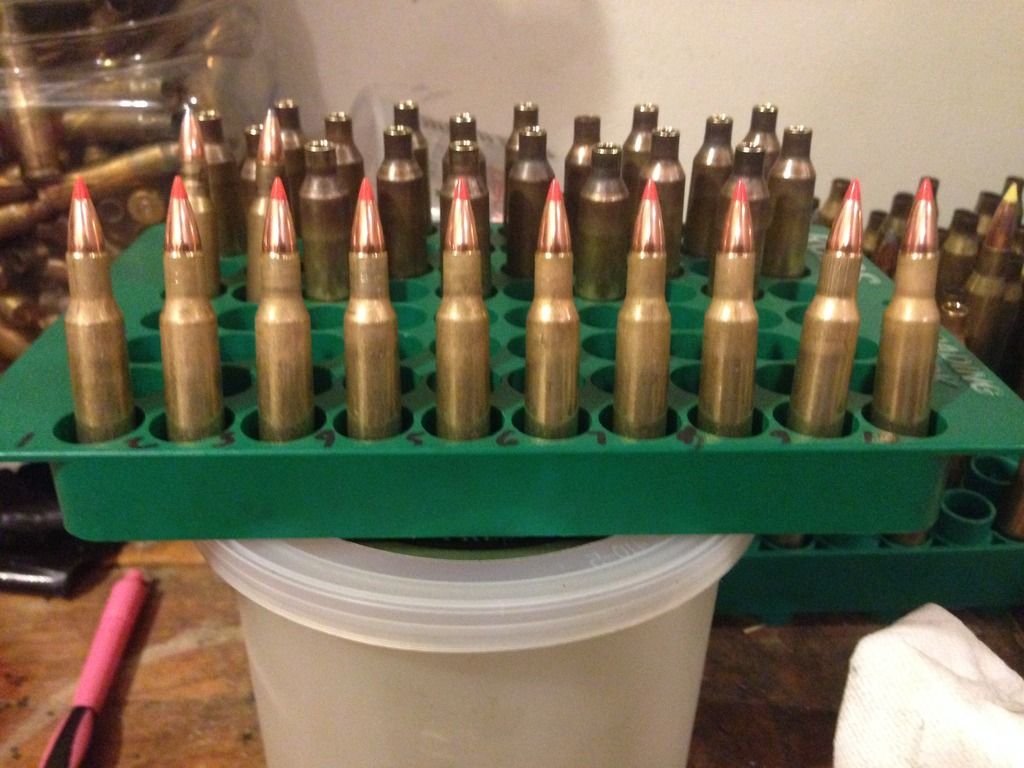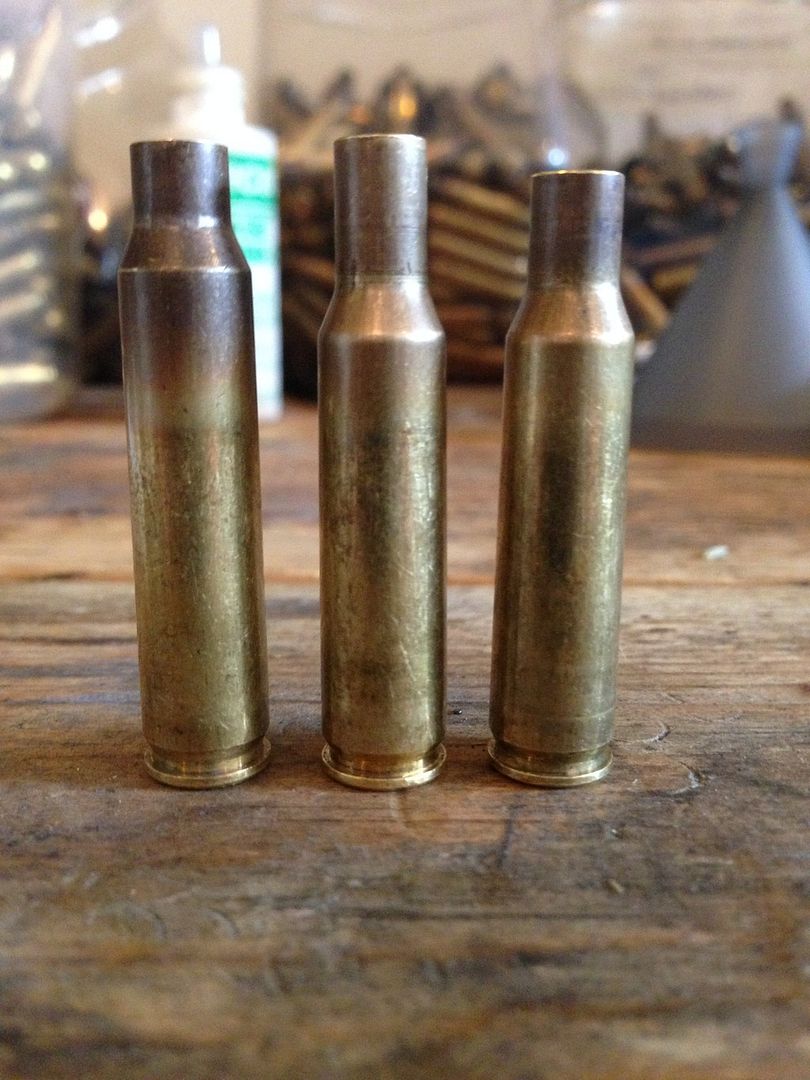*update*Making 222 brass from 223
- Thread starter Theshedhunter
- Start date
Theshedhunter
Active member
After a lot more reading and measuring case necks I determined my rifle's chamber will allow me to size down 223 cases to 222 without neck turning. The donor brass is 1x Remington commercial 223, annealed prior to sizing down. I loaded up some mild loads and shot them this morning. And yes on the first one I was standing behind a tree with only my arm exposed when I fired the first one off, just as a precaution
 They all went bang and shot pretty good although it was not an accuracy mission at this point. No split necks, no pressure signs, no hard lift or extraction. I am going to see how many firings I can get on these vs. factory 222 brass with similar loads.
They all went bang and shot pretty good although it was not an accuracy mission at this point. No split necks, no pressure signs, no hard lift or extraction. I am going to see how many firings I can get on these vs. factory 222 brass with similar loads.





rainierrifleco
New member
I would say yes also as the ones I made all split on the first shot....too much hassle for me so I bought a bunch of brass..
Theshedhunter
Active member
I had done a lot of brass prep that evening so I deburred them with a drill attachment cuz my hands were tired! Removed a little more material than I realized at the time.
Im a heavy chamferer anyways as I load alot of flat base bullets and get tired of picking them up off the floor!
Im a heavy chamferer anyways as I load alot of flat base bullets and get tired of picking them up off the floor!
Last edited:
Jay Cummings
New member
I'm just asking why? Quality 222 brass is easy to come by.
Theshedhunter
Active member
Well Jay I have about 18,000 223 cases and lots of time! Im also cheap as he ll.
If I can make it I will NEVER buy it and that goes for pretty much anything!
If I can make it I will NEVER buy it and that goes for pretty much anything!
Jay Cummings
New member
LOL! Well taken.
CritterAcres
New member
My old rule of thumb is: If you can drop a bullet through the neck of a fired case without resistance you should be able to get by without turning necks. I prefer necking up to necking down but have done both.
Theshedhunter
Active member
For anyone interested, I now have 7 firings with a hot load of IMR 4198 on this brass, with 2 discards out of the original 20 test pieces due to split neck. I anneal every other firing. Shooting 40 gr vmax with excellent accuracy.
Theshedhunter
Active member
Good ole Remington 788


